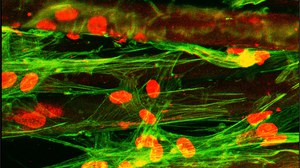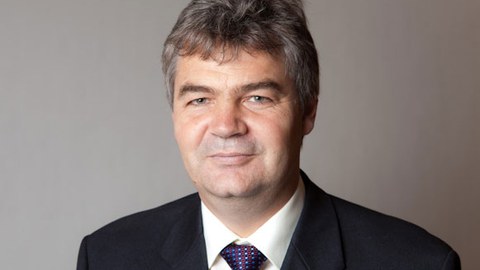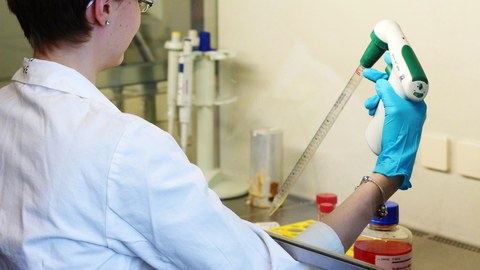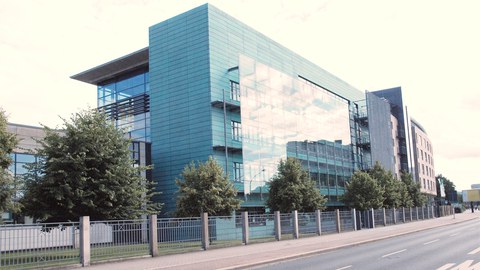Short profile
The Chair of Biomaterials represents in teaching and research the topics biomaterials, nano- and biomaterial analysis and corrosion. A special focus in the field of teaching is the basic lecture on materials science. An overview with the possibility to enroll can be found in the menu item Studies as well as in the OPAL course offer of the Chair of Biomaterials.
 © AG Scharnweber
© AG Scharnweber
Chair of Biomaterials
Teaching
The teaching activities focus on the basics of materials science, biomaterials, biostatistics and biomechanics as well as nanoanalytics, surfaces and corrosion.
Research Priorities
Bioresponsive Material Systems and Bioinspired Composites
- Research into biomimetic materials for hard tissue replacement
- Influence of material-inherent properties on bone cells
- Analysis of biomaterial degradation for in vitro - in vivo translation
Functional biomaterials
-
Tissue-specific two- and three-dimensional artificial extracellular matrices (aEZM) made of natural polymer materials as defined adjustable micro-environments for controlling cellular behaviour
-
aEZM with defined efficacy profiles, including influencing mediator proteins present in vivo (growth factors, cytokines) to actively support the regeneration of bone and skin tissue, especially for older patients with limited healing capacity
-
Elucidation of the structure-property relationships of glycosaminoglycan (GAG) derivatives in their interaction with healing-relevant mediator proteins and their receptors
Corrosion and Surfaces
- Functionalisation of technical material surfaces through the use of pyroelectric materials and biological structures
- Determination of coating properties and corrosion investigations
Microcomputed Tomography
- 3D and 4D imaging of biomaterials, material composites and living organisms
- Investigation of spatial morphological relationships via volume models and surface evaluation including the Finite Element Method (FEM)
The professorship has two locations, the Berndt-Bau and the Max-Bergmann-Center for Biomaterials.



